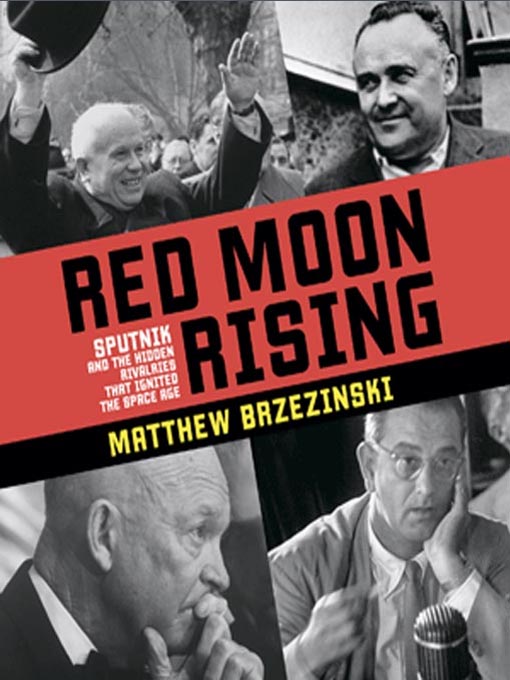
Red Moon Rising
Sputnik and the Hidden Rivals That Ignited the Space Age
کتاب های مرتبط
- اطلاعات
- نقد و بررسی
- دیدگاه کاربران
نقد و بررسی

This book tells the behind-the-scenes story of Sputnik, the first satellite launched into Earth orbit, and the space race between the United States and the Soviet Union. The story starts with the race for German technology, especially that of the German rocket scientists of WWII and moves through the beginning of the Cold War. The book offers a unique view of the geopolitics of the 1950s, and both history and space buffs will find it fascinating. However, the author tells the story in, at times, almost excruciating detail. This slows down the narration. Reader Charles Stransky is solid. He varies his tone and pace to good effect. And his pronunciation of Russian terms and names is crisp and clear. R.C.G. (c) AudioFile 2008, Portland, Maine

Starred review from June 18, 2007
The writing is fast-paced and crisp, the stakes high and the tension palpable from the first pages of this high-flying account of the early days of the space race between the U.S. and U.S.S.R., a race ignited by the Soviet launch of the first satellite, Sputnik, in 1957. Brzezinski (Fortress America
), a contributor to the New York Times Magazine
, says this battle for military and technological control of space, part of the larger Cold War, had lasting consequences. Brzezinski illuminates how the space race divided Americans: for instance, then Sen. Lyndon Johnson wanted to aggressively pursue the race, but President Eisenhower thought the ambitious senator was merely seeking publicity. The author also dissects the failed American spin: despite White House claims that Sputnik was no big deal, the media knew it was huge. Sputnik II, launched a month later, was even more unsettling for Americans, causing them to question their “way of life.” The principals—Khrushchev, Eisenhower, John Foster Dulles, rocket scientist Werner von Braun—are vividly realized. Yet even more than his absorbing narrative, Brzezinski’s final analysis has staying power: although the U.S. caught up to the U.S.S.R., it was the Russians’ early dominance in space that established the Soviet Union as a superpower equal to America.

























دیدگاه کاربران